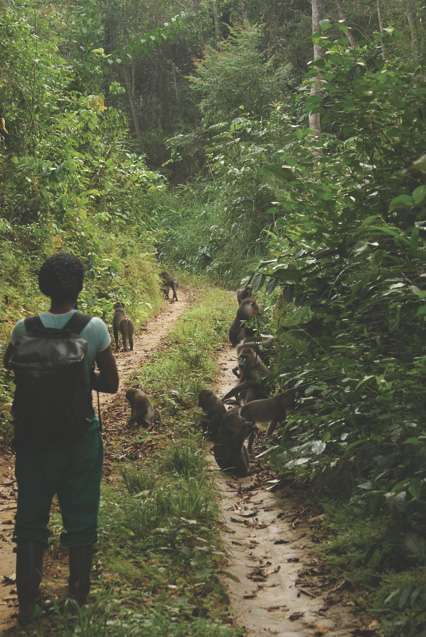Knowledge transfer & partnership
ISEM has long been involved in research and development in partnership with countries in the Global South, with the support of IRD and CIRAD, particularly through long-term assignments and missions, as well as via long-term partnerships with universities and local actors in these countries.

Southeast Asia
ISEM activities in Southeast Asia are long-standing and well structured. Several teams have long been conducting research in Indonesia, with the main partners being the Indonesian Institute of Sciences (LIPI), the Ministry of Marine Affairs and Fisheries (KKP) and the Bogor Agricultural University (IPB). The research is mainly focused on fish biodiversity conservation, ecological intensification of continental family fish farming and the adaptation of local communities to volcanic hazards. Collaborations in Thailand with Kasetsart, Burapha and Chulalongkorn Universities address issues related to the modelling and conservation of mammalian biodiversity. ISEM is also planning activities in Cambodia to meet the substantial aquaculture development needs, in collaboration with the Royal University of Agronomy (RUA), the Institute of Technology of Cambodia (ITC) and the Fisheries Administration (FiA).
Africa
ISEM researchers collaborate with many African colleagues (Morocco, Algeria, Tunisia, Senegal, Cameroon, Guinea, Togo, Gabon, Zambia, Kenya, Namibia, South Africa, Reunion, Madagascar), in accordance with their geographical, linguistic and diplomatic proximity. In North Africa, our most far-reaching partnership involves Mohammed V University in Rabat, Morocco, with a view to gaining greater insight into the functioning and preservation of local wetlands. We also have many collaborations under way in sub-Saharan Africa on a broad range of issues. In Gabon, we work closely with the International Centre for Medical Research in Franceville (CIRMF), a company that manages the Lékédi Wildlife Park (SODEPAL), and the Masuku University of Science and Technology (USTM). We conduct health ecology, behavioural ecology and primatology research with these partners. Moreover, we are conducting long-term research In collaboration with the University of the Witwatersrand, South Africa, combining ecology, physiology and genetics on the adaptive response of rodent species to the increasingly arid conditions in southern Africa.


South America
ISEM is very active in South America and the West Indies, with research focused particularly on the issue of grassland and forest fire dynamics in relation to climate change, in Brazil with the University of São Paulo, as well as in Bolivia with the Universidad Nacional Mayor de San Andrés. Another ISEM cross-cutting research focus in the region concerns the evolution of neotropical biodiversity (past and present; Amazonia, Andes and West Indies) in relation to tectonic and climate factors. The latter involves numerous multinational partnerships and doctoral/postdoctoral co-supervision, financed mainly by LabEx CEBA and various French National Research Agency (ANR) and European Research Council (ERC) projects. Finally, collaborations with the Cayenne hospital concern the dynamics of animal parasitic disease epidemics, a mainstay of ISEM research in the Global South, French Guiana and the Amazon Basin.